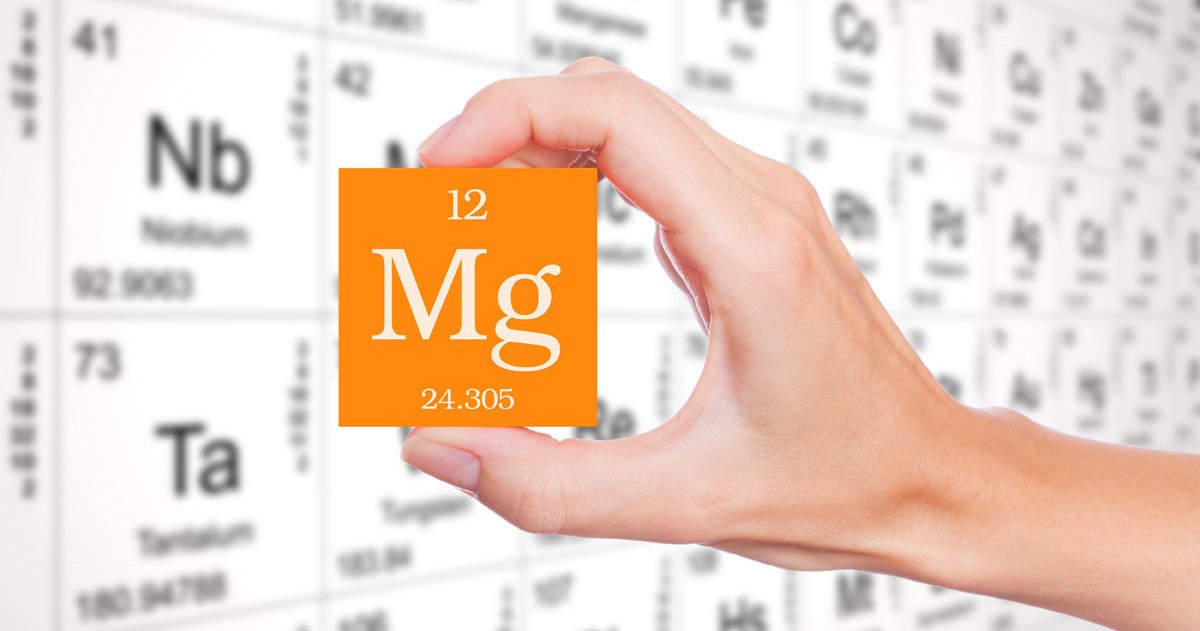There are more than 300 chemical reactions in the body which rely on magnesium, including enzyme activation, energy production and bone mineralization. During these reactions Magnesium acts as a molecular cofactor supporting the reaction (including those converting food into energy) so when our bodies fall into a deficient status those reactions are negatively affected.
How do people become Magnesium deficient?
Approximately 80 percent of people have low levels of magnesium, meaning the chances are that you too have some level of deficiency. Be aware that only 1 percent of magnesium in your body is in your bloodstream so it may be missed in blood tests.
Hypomagnesemia, or Magnesium deficiency, refers to a severely inadequate intake of dietary magnesium or impaired absorption of magnesium and may occur due to:
-
Reduced availability in the food supply. Although Magnesium exists in foods like legumes, nuts, whole grains, and green leafy vegetables. Modern farming practices and intensive farming has caused depletion of soils which has reduced the percentage of magnesium present in food. [1]
-
Absorption issues in the small intestine caused by digestive issues, like celiac disease, Crohn’s disease, Leaky Gut, regional enteritis like IBD, or due to artificial shortening of the intestine because of weight loss surgery. All are known to reduce magnesium absorption. Magnesium absorption is also reduced because of the normal decline in our systems due to aging.
-
Certain medications. Chronic disease and medication use has increased exponentially and much chronic illness is associated with magnesium deficiency and lack of mineral absorption. Medications may also cause damage to the gut (like ulceration) which is responsible for absorbing magnesium from our food and beverages. Medications which deplete Magnesium include acid blockers (Tagamet, Nexium +), antacids (Maalox, Milk of Magnesia, AlkaSeltzer+), antibiotics (Amoxicillin, Doxycycline +), antiviral agents (Rescriptor, Foscavir+), birth control pills, blood pressure drugs (Apresoline), diuretics, and corticosteroids (Dexamethosone, Prednisone+) and many more. [2]
-
Low Stomach Acid/Hypochlorhydria. The body needs appropriate stomach acid in order to break down minerals.
-
Alcohol dependency or regular use. Alcoholics often experience magnesium deficiency as alcohol is an “anti-nutrient”, drinking alcohol speeds up the excretion of magnesium through the kidneys. It can also deplete calcium, zinc, iron, manganese, potassium and chromium. Alcohol also depletes the minerals in your body because it causes dehydration, biome imbalance, compromises the immune system, changes sleep patterns and premature aging.
-
Soda. Drinking soft drinks depletes your body of calcium and magnesium.
-
Coffee/Tea. Calcium/magnesium are lost in our urine with caffeinated drinks as well as reserves of potassium and sodium.
-
Stress is also known to deplete levels of Magnesium in the body.
Signs of Magnesium Deficiency

Initial signs of deficiency may include:
-
Fatigue
-
Insomnia – potentially leading to sleep disorder
-
Restless Leg Syndrome (RLS)
-
Muscle Pain / Fibromyalgia. A study published in Magnesium Research examined the role of magnesium in the management of symptoms of Fibromyalgia, finding that increased magnesium levels reduced pain and tenderness and also improved blood markers for immune health. [4]
-
Anxiety (irritability and nervousness, even panic attacks). Symptoms get worse as status of deficiency increases.
-
High Blood Pressure (Hypertension), Irregular Heartbeat and Risk of Stroke. Seven studies were involved in a meta-analysis that observed a diet high in magnesium rich foods could reduce the risk of a stroke by as much as 8 percent, profound considering that hypertension causes approximately 50 percent of ischemic strokes in the world. [5]
-
Type II Diabetes.
-
Although Magnesium deficiency is considered one of 4 main causes of Diabetes Mellitus, it is also a common symptom of deficiency. A meta-analysis of seven studies (6 American, 1 Australian) reported that the addition of magnesium supplementation (100 milligrams/day) lowered the risk of diabetes by 15%! [6]
-
In a study that examined 1,452 adults from Australia, hypomagnesemia was 10 times more common in new diabetics and 8.6 times more common with known diabetics. [7]
-
Migraines
-
Magnesium deficiency has been linked to migraine headaches because of its role in balancing the body's neurotransmitters and role in blood flow. According to the Linus Pauling Institute, magnesium supplementation at a dose of 730 milligrams per day can cause a 12 percent improvement in the normal dilation response of arteries. It also decreases arterial wall dysfunction, resulting in better blood circulation. An increase in blood flow to the brain is known to reduce the incidence of Migraines. Improved blood flow also allows more blood to reach the heart and muscles of upper and lower extremities, potentially leading to an improvement in overall exercise and physical stress tolerance.
-
Studies have shown that preventive treatment with oral magnesium and acute headache treatment with intravenous magnesium may be effective, particularly in certain subsets of patients. Daily Magnesium supplementation reduced the frequency of migraine headaches by up to 42%. [8]
-
Bone Density (Rickets, Osteopenia and Osteoporosis) A study in Biology Trace Element Research showed that supplementation with Magnesium slowed the development of osteoporosis “significantly” after 30 days. (*Vitamins D3 and K2 should be taken in addition for best effect)
-
Other symptoms of deficiency are: constipation, hyper excitability, muscular symptoms (cramps, tremors, fasciculations, spasms, tetany (types of contraction), weakness), fatigue, loss of appetite, apathy, confusion, irritability, poor memory, loss of focus and reduced ability to learn
Contraindications:
Magnesium significantly reduces the absorption of oral bisphosphonates and tetracycline antibiotics and may reduce their activity.
Sources
[1] http://www.rejuvenation-science.com/research-news/calcium-magnesium/n-calcium-depletion
[2]http://www.jigsawhealth.com/blog/drug-muggers-suzy-cohen-magnesium
[3] Bilbey, D L, and V M Prabhakaran. “Muscle cramps and magnesium deficiency: case reports.” Canadian family physician Medecin de famille canadien vol. 42 (1996): 1348-51.
[4] Eisinger, J et al. “Selenium and magnesium status in fibromyalgia.” Magnesium research vol. 7,3-4 (1994): 285-8.
[5] Larsson, Susanna C et al. “Dietary magnesium intake and risk of stroke: a meta-analysis of prospective studies.” The American journal of clinical nutrition vol. 95,2 (2012): 362-6. doi:10.3945/ajcn.111.022376
[6] Larsson, S C, and A Wolk. “Magnesium intake and risk of type 2 diabetes: a meta-analysis.” Journal of internal medicine vol. 262,2 (2007): 208-14. doi:10.1111/j.1365-2796.2007.01840.x
[7] Simmons, David et al. “Hypomagnesaemia is associated with diabetes: Not pre-diabetes, obesity or the metabolic syndrome.” Diabetes research and clinical practice vol. 87,2 (2010): 261-6. doi:10.1016/j.diabres.2009.11.003
[8] Sun-Edelstein, Christina, and Alexander Mauskop. “Role of magnesium in the pathogenesis and treatment of migraine.” Expert review of neurotherapeutics vol. 9,3 (2009): 369-79. doi:10.1586/14737175.9.3.369

